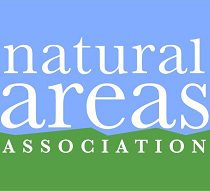Events
Natural Areas Conference 2024
Conference website. 2024 Natural Areas Conference (NAC24) October 7-10, 2024 Manhattan, Kansas For the past 50 years, NAA’s Natural Areas Conference has gathered federal, state, tribal, regional, and local natural areas practitioners from national nonprofit organizations, private industry, and academic institutions in order to foster communication and collaboration that can lead to progress in connection…
Post-fire restoration infrastructure: Adjusting our systems to new patterns of runoff
Webinar recording. We reengineer and rebuild after wildfire through a range of treatments, trying to match our built infrastructure to new, amplified patterns of runoff. A national wildfire practitioner speaks to how leaders and policy makers are increasingly recognizing the need to manage the built environment to accommodate these changes, and an environmental engineer shares…
Ecological drought: Future of aquatic flows
Webinar recording. This webinar will explore how climate change is altering aquatic flows in streams and rivers across the country. Implications of how the nexus of climate and aquatic flows may impact aquatic ecosystem management will also be discussed. Research findings from the 2022–2024 Climate Adaptation Postdoctoral (CAP) Fellows cohort will be shared.
Recreating and relating to the land after fire
Webinar recording. Wildfires reshape recreation access and experiences over the short and long term. A researcher shares emerging science that is revealing how people return to and perceive wildfire-affected landscapes, and a manager shares how they navigate decisions about supporting recreation in these contexts.
The fire problem
Webinar recording. Join us for a watch party for a new documentary "The Fire Problem." Released by the University of Montana, the video features interviews with several Forest Service researchers.
How will future climate change impact prescribed fire across the contiguous US?
Webinar recording. The use of prescribed fire to manage ecosystems is increasing across the United States, but climate change threatens to impact future opportunities for prescribed fire as a result of changes in meteorological conditions and fuels. I will discuss the results of a recent study which combined prescription information from 80 sites across the…
Fire eruption: First results from the California Canyon fire experiment
Webinar recording. The California Canyon Fire Experiment is the first large-scale field experiment that observed fire eruption. The experiment was conducted in a steep canyon near Salinas, CA on 24 October 2022. A large suite of in situ and remote sensing instruments were deployed including micrometeorological towers, Doppler radar and lidar and airborne infrared imaging…
The fire suppression bias
Webinar recording. Fire suppression is the primary management response to wildfires in many areas globally. By removing less-extreme wildfires, this approach ensures that remaining wildfires burn under more extreme conditions. This is termed the “suppression bias”, and it fundamentally impacts wildfire activity, independent of fuel accumulation and climate change. Attempting to suppress all wildfires necessarily…
Expanding the fuels planning toolkit: Terrestrial laser scanning and 3D fuels characterization for improved wildland fire decision support
Webinar recording. Wildland fire managers require an expanded toolbox for decision support in the context of an increasingly novel fuel and fire environment complicated by a changing climate, invasive species encroachment, and rapid increase in wildland-urban interface in many areas within the U.S. Terrestrial Laser Scanning (TLS) offers an efficient, cost-effective, and powerful tool for…
Building ecosystem resilience and adaptive capacity: A systematic review of aspen ecology and management in the SW
Webinar recording. Speaker: Connor Crouch, Forester, USDA Forest Service, Mark Twain National Forest. Description: In this webinar from the Forest Stewards Guild and Southwest Fire Science Consortium, attendees will hear about insights from the recent paper. The speaker will highlight the threat to aspen ecosystems posed by climate change, chronic ungulate browse, and outbreaks of…



